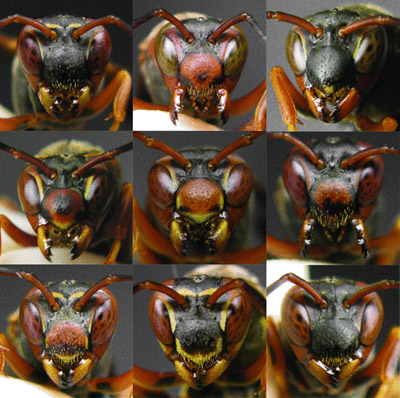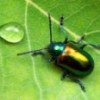
A sampling of face patterns in Polistes fuscatus paper wasps
Polistes fuscatus paper wasps sport a bewildering array of facial markings. Why is this?
A new paper by Michael Sheehan and Elizabeth Tibbetts in the journal Evolution suggests natural selection may favor rare patterns, leading to a proliferation of diversity. Sheehan & Tibbetts performed an elegant experiment on 18 groups of 4 foundress queens, painting three wasps with one pattern and the remaining one with a different pattern. Regardless of the details of the actual face markings, the rare pattern consistently received less aggression than the common patterns. In paper wasps, at least, different is better.
(as an aside, I should mention that I met Elizabeth Tibbetts in an elevator at the IUSSI meeting in Washington, D.C. She introduced herself after she read my name badge and recognized who I was. Seems individual recognition is useful in our species, too...)

I'd buy a poster of that image. Such a poster might find a home in many science classrooms as well.